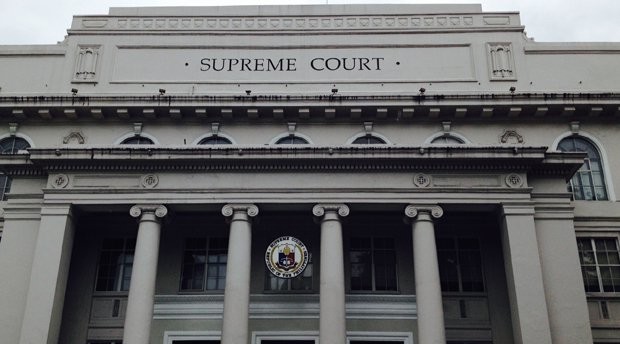The Supreme Court has ordered the Department of Energy (DOE) and the Energy Regulatory Commission (ERC) to respond to the petition which sought to stop the retail competition and open access (RCOA) scheme in the electric power industry.
High Court’s Information Chief Atty. Theodore Te on Tuesday said the DOE and the ERC were given 10 days from notice to submit their comment on the petition filed by the Philippine Chamber of Commerce & Industry (PCCI), Ateneo De Manila University, San Beda College (Alabang) and mall owner Riverbanks Development Corporation.
The DOE and ERC were also ordered to comment on the petitioner’s application for a temporary restraining order (TRO).
In their petition, they urged the high court to immediately stop the implementation of the new regulations compelling power consumers with a monthly average peak demand of 1 Megawatt (MW) to abandon their current power supply contracts and enter into new contracts with any of the 23 suppliers chosen by the ERC to supply the contestable market.
READ: Rules for contestable power market questioned before SC
The petition was filed amid controversy at the ERC following the death of Energy Regulatory Commission director Francisco Villa Jr., chair of the ERC bidding committee who took his own life last November 9 due to alleged pressure from ERC chairman and chief executive officer Jose Vicente Salazar.
READ: Suicide case linked to corruption in ERC
In the recent petition, petitioners questioned the ERC resolutions authored by Salazar and other commissioners and a DOE circular saying it will deprive electricity consumers of their basic constitutional right to freedom of choice.
The ERC resolution imposes mandatory contestability on electricity consumers which petitioners said limits the consumer’s choice of suppliers by prohibiting distribution utilities from participating in the contestable market even if the distribution utilities can offer the lowest price to consumers.
They pointed out that the DOE and ERC violated the Constitution and the Electric Power Industry Reform Act (Epira) when they issued the said regulations.
This latest group has joined Manila Electric Co. (Meralco) and other consumer groups like FPI, ECOP, SEIPI, Citizenwatch, AGHAM and other distribution utilities belonging to Philippine Plant Owners Association (Pepoa), electric cooperatives belonging to Philippine Rural Electric Cooperatives Associations,Inc. (Philreca), retail electricity suppliers, etc., in questioning the validity of the DOE and ERC regulations for being anti-consumer.
These business groups, consumer groups and educational leaders are all one in saying that the DOE circular and ERC regulations in question do not promote free competition and will lead to higher prices of electricity to ordinary consumers and will have a negative impact on economy.
Contrary to Salazar statements made earlier, it appears that these ERC resolutions are not “accomplishments” of the embattled chair but a major setback for the agency.
The petitioners lamented that the new regulations abandoned a previous policy allowing distribution utilities and their retail supply units from competing for large consumers in the contestable market.
As a result, the regulations limited choices of large power consumers from the list of retail suppliers deemed qualified by the ERC.
The petition also protests the deadline imposed on these big power consumers to enter into new power supply contracts no later than February 26, 2017 or be slapped with the penalty of disconnection or the payment of a hefty 10% premium on their contract price or the Wholesale Electricity Spot Market (WESM) price, whichever is higher.
The petitioners warned that the regulations could lead to an increase in the cost of their power requirements that could translate to an increase in the prices of goods and services that is detrimental to the national economy. RAM/rga
RELATED STORIES
